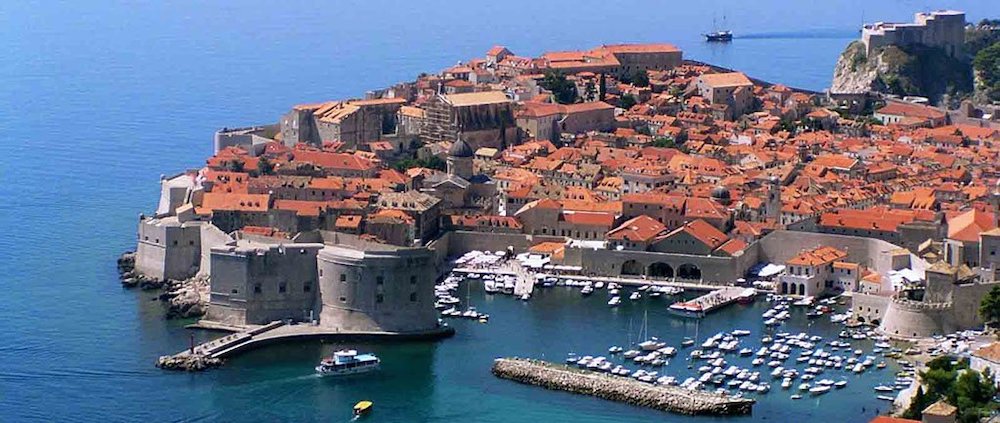Module 2 The skipper profile
November 21, 2019Module 4 Innovative on board activities and services
November 21, 2019Module 3 The cultural context of the yacht trip
What is the cultural context of the yacht trip and why is it important?
Cultural context’ of the yacht trip is all about the culture and history of the region (sailing area) and the related attractions of that area. But, it is also much more than the set of well known ‘must-see’ attractions in the region, only. It also refers to some local stories like historical stories or folk tales that originate from the heritage of that region. It is also about gastronomy and oenology of the region since these are the most growing segments of tourism today. Tourists seek a unique experience of tasting local gastronomic delights, indigenous wines, olive oil etc., and the Mediterranean is famous for its diverse gastronomy and amazing wines. Furthermore, there is all kind of events in almost every tourist destination during the summer season. Historical, musical, art, gastronomy and similar events are organized for both, tourists and local people.

What is your role regarding the cultural context of the yacht trip?
In order to enhance the sailing experience of your guests on board and to increase their overall satisfaction with the yacht trip, you have to be able to provide them with the information about the culture and history of the region and the attractions related to that. Indeed, one of your roles on board is to be a local tour guide to your passengers. Find out which are the most popular restaurants, bars and wine cellars in the destination you are about to visit. Have in mind that not all tourists seek high-profile restaurants. Some of them want to experience the local way of life, so you can offer them an old local tavern with the specialities of that area or a visit to a local open market. Try to get all the information about the dates and the programs of the most popular events. For example, if you have elderly passengers they may be interested in a classical music concert held at a very attractive location. If your passengers are younger try to find some popular concerts of modern music or music festivals. Since this topic is very comprehensive, it is very important to prepare well in advance and to be informed where you can get all the information that you can later communicate to your passengers on board.
Where to find the necessary information on the cultural context of the area?
The first step in finding all the necessary information about cultural attractions is visiting the local tourism board’s web pages. Every tourism board has basic information about the destination – what are the most famous attraction, restaurants, events etc.
The second step would be to visit the tourism boards personally, if possible. Ask them for information that interests you, and collect some brochures of destinations along your usual sailing routes. Do that at the beginning of the sailing season.
The third step would be to explore on the internet all other relevant information you can find. Not only tourism boards offer relevant and interesting information about the cultural attractions in your country.
How to properly communicate information about cultural attraction to your passengers?
In nautical tourism, tourists spend most of the time on the yachts. You will, therefore, be the only person they can ask for information regarding the destination they are going to visit. To meet their expectations you will need to be well prepared for their questions. Some of them will definitely be about cultural attractions. Try to be clear and concise and summarize all the main attraction. Except the famous ones try also to remember some interesting stories, tips or similar information they might like. Remember that tourists usually like to experience something local and authentic, and to feel like they had ‘tasted’ the sense of the place they visit. On the other hand, not everyone will be so interested in local cultural attractions. Try to motivate them and to stimulate their curiosity. Of course, an aggressive approach is not recommended. Try to find the right moment and unobtrusively intrigue them with some interesting and amusing stories about the history and culture of the destination.
Please see also the part about interpersonal skills to learn how to communicate this information to the passengers.
Tip: At the start of each yachting trip ask your passengers if they have some preferences regarding the cultural context of the trip. For example if they are gastro fans give them few suggestions for restaurants with quality local food and wines. Try to suggest restaurants with attractive location, or special gastronomic offer. You can book the table for them in advance. If your passengers are interested in architecture search on the internet famous works of architecture and show them in brochures what that destination has to offer.

Do’s
– Good preparation is half of the work – collect all the information before your trip starts and passengers arrive
– While preparing, think of all possible types of cultural attractions that passengers would like to explore
– Seek information from local tourism boards and internet
– Gather information about well known (must see) attractions
– Gather information about secret attractions that only local people know
– Gather information for all age groups
– Propose to guests to buy local food and drinks at the store or market and to try them on board
– For those who are not so interested in the cultural aspect of the trip try to get them interested with an unobtrusive and entertaining approach using verbal skills and influencing skills
Don’ts
– Seek the information after the trip has begun
– Focus only on one type of cultural attractions
– Offer passengers advise only about well-known attractions
– Impose to the passengers your ideas about the tours or travel itineraries
– Offer the same range of attraction to all passenger
– Aggressively impose your opinion
Storytelling examples (e.g. Croatia)
Wine story: If you noticed that your passengers are big wine lovers, tell them an interesting story about Zinfandel, one of the most famous wines in the USA. It is usually thought that it originates from California, but DNA testing in the 1990s proved that Croatia’s crljenak kaštelanski is zinfandel in its native form. Many later award-winning wines in Croatia were made of that wine variety. (Source)
Myths: If you are sailing in Cres-Lošinj archipelago in the Kvarner Bay, which is known for its pristine nature, tell your passengers a Greek myth about the Argonauts. In ancient times, the islands of Cres and Lošinj were known as Apsyrtides. Absyrtus, the Greek hero, succeeded in this archipelago in fleeing their persistent pursuers, carrying on their ship the golden fleece Argo that Jason stole from Colchis (nowadays on the Black Sea coast of Caucasus). With the help from Medea, Absyrtus’ sister, Jason waited for him around these islands, beat him, cut his body into pieces, and threw them into the sea. That’s how the city of Osor (Apsoros) got its name. (Source)
Life story with famous person: If you are sailing around Brijuni islands (especially if you have Austrian passengers on board or persons professionally connected to medicine) tell them a story about a famous Austrian industrial magnate, Paul Kupelwieser (1843-1919), who decided to buy Brijuni and develop it into a health resort and cultural centre. It was a risky investment at the time, especially because malaria was still threatening at that time. But Paul Kupelwieser brought doctor Robert Koch (1843-1910) to the island. This celebrated German physician and pioneering microbiologist, who received the Nobel Prize for his results in healing tuberculosis, spent two years on the Brijuni Islands, from 1900 to 1902, and successfully eradicated the disease. Grateful for these efforts, Kupelwieser erected a sculpture in honour of Koch, which still stands on Great Brijun island. (Source)
Useful links for Croatia:
https://www.apartmaninfo.hr/otkrijte-hrvatsku
Useful links for Greece:
http://www.greece-is.com/thinking-sailing-trip-greece-heres-need-know/
http://www.greece-is.com/astypalea/
Useful links for Spain:
https://www.spain.info/en/reportajes/de_charter_nautico_por_espana.html
Useful links for Bulgaria:
https://www.myguidebulgaria.com
http://www.bulgariatravel.org/en/Article/Details/2046/Sea%20Tourism





